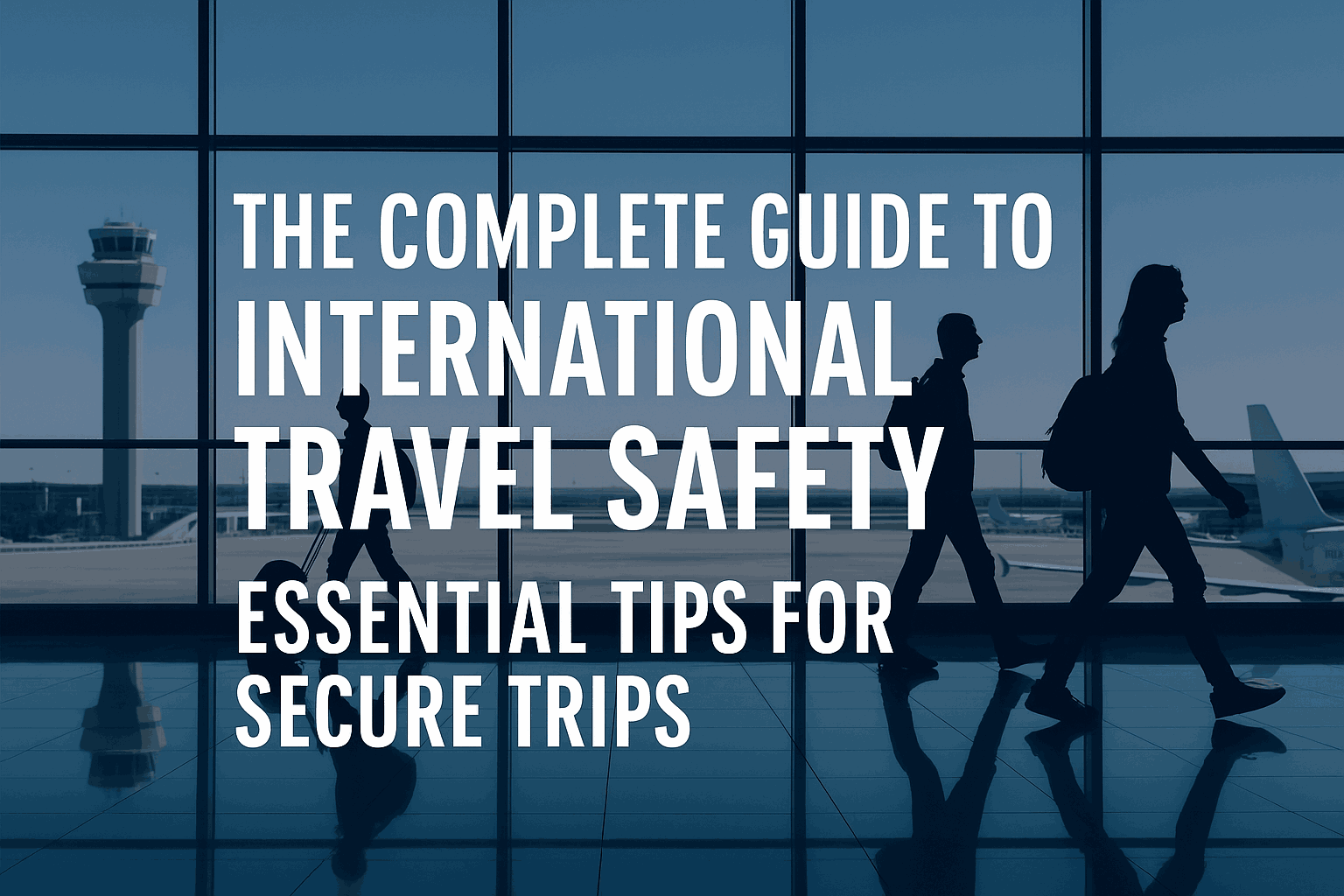Why Travel Safety Matters Now More Than Ever
With global travel becoming more accessible, understanding travel safety techniques is crucial for all travelers. This guide combines official recommendations with modern safety tips from security experts.
Pre-Trip Preparation Essentials
Destination Research: Your First Safety Step
Consult government travel safety guides for advisories
Research local customs and laws to avoid violations
Identify safe hotels and neighborhoods
Pro Tip: Enroll in the Smart Traveler Enrollment Program (STEP) for government alerts.
Document Security: Protect Your Travel Lifelines
Store digital copies of passports in secure cloud storage
Carry emergency contact information for your embassy
Learn about local emergency drink standards (water safety)
Health & Medical Safety Abroad
Travel Health Preparation
Pack self-defense products allowed in destination countries
Research medical vacations facilities at your destination
Understand contact precautions for local healthcare systems
Insurance & Emergency Planning
Verify coverage for emergency medical transportation
Save carnival cruise emergency contacts if taking a cruise
Know how to access safe ride medical transportation services
On-the-Ground Safety Strategies
Personal Safety Measures
Use personal safety alarms in crowded areas
Learn basic self defense for women techniques
Choose best places to travel solo female approved areas
Accommodation Security
Use portable door lock for hotel room devices
Research hotel security measures before booking
Identify safest places to stay in DC or other cities
Digital & Financial Protection
Cyber Safety While Traveling
How to protect a mobile device while traveling:
Use VPNs
Enable remote wipe
Avoid public WiFi for banking
Financial Safety Tips
Carry multiple payment methods
Know how much to tip taxi driver locally
Use best taxi services with verified drivers
Emergency Preparedness
Crisis Response Planning
Save local emergency contacts in your phone
Identify safe ways to travel during unrest
Learn travel security protocols for your destination
Special Situations
Safety tips for natural disasters
Contact precautions during health outbreaks
Personal safety precautions for high-risk areas
Conclusion: Travel Smart, Stay Safe
By following these safety practices, you can enjoy worry-free travel to best vacation destinations while being prepared for emergencies.
Official Credits & Resources
This guide incorporates verified safety recommendations from:
Government Sources:
International Organizations:
Reputable Safety Organizations:
International SOS Travel Risk Maps
Control Risks Travel Security Alerts
American Red Cross Travel Safety Tips
Recommended Safety Tools
Mobile Apps:
Safety Gear Providers:
Pacsafe (anti-theft travel gear)
Sabre Personal Alarms
DoorJammer Portable Hotel Security
Remember: “Safe travels begin with good preparation.” Always research what is the safest way to travel for your specific destination.





